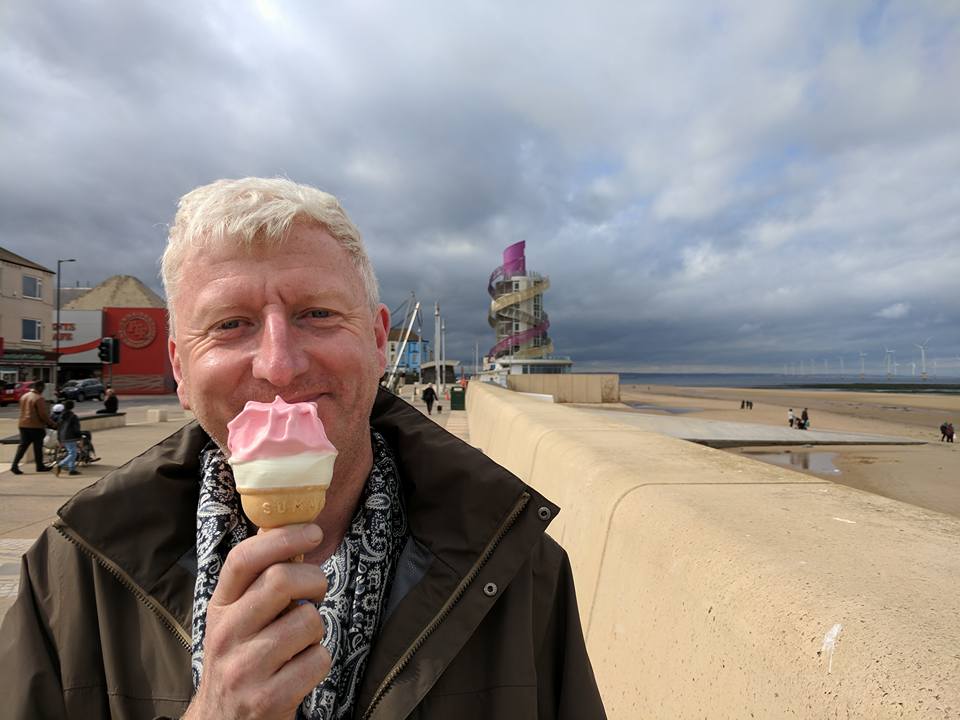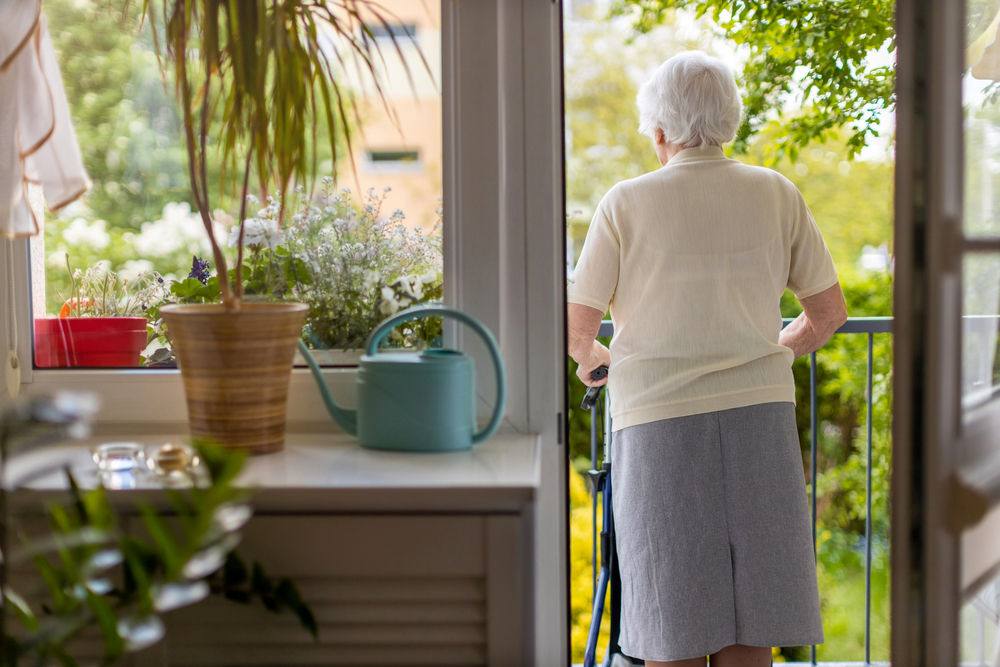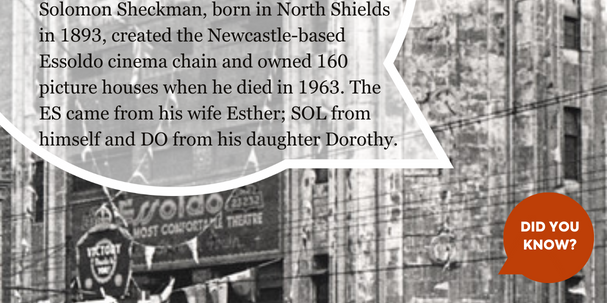
The old lady has pale blue eyes, wavy white hair and a benign smile. She sits in a chintz-covered armchair, a blue leather handbag balanced on her lap. “Do you have any children?” she asks. I tell her I have a daughter who is 26. The old lady nods. “I never had any myself,” she says, “I didn’t care for them. I always preferred dogs.” I know for certain that one of these statements is untrue. Because the blue-eyed, white-haired old lady is my mother.
My mother was diagnosed with dementia during Covid times by a district nurse who had come to treat my father for a severe scald on his thigh caused by tomato soup (don’t try to eat boiling food from a bowl on your lap, is the lesson here).
Perhaps there had already been signs — the last Christmas before lockdown I gave my mother a box of miniature perfumes from Penhaligon and she couldn’t work out how to open it; a holiday to Whitby was curtailed because she feared the spiders in the bedroom; she started folding and refolding paper napkins with a strange intensity.
If my father noticed anything was wrong, he didn’t say. My mother and father have been married for over six decades. My father is ferociously loyal. To suggest that his wife’s grasp on reality was loosening would have been to him the act of betrayal.
- Read more: We need to demand more from policymakers and politicians
- Read more: What’s next for devolution?
To this day he will not say dementia. He says ‘your mother’s condition’ or ‘this thing your mother has’. He is of a generation for whom ‘demented’ was a pejorative term. He will not insult my mother with it, no matter what the modern world tells him. Maybe he hid the disease from others, and perhaps he concealed it from himself, too. Some facts are better not faced, if you can avoid them. But in the end you can’t.
Did my mother sense it coming? Did it creep upon her stealthily or pounce when she slept? The only time she ever indicated she knew anything of it was one spring afternoon when we sat looking through photograph albums together. After pointing out some long lost relative from childhood, she turned to me with a flicker of panic. “I’ve got this awful thing going wrong with my mind,” she said.
Later, I imagine a person losing their balance on the edge of a precipice, arriving at the point when they know it’s too late to fight the forces of gravity, that however much they wave their arms and yell, there is no going back to the safety of an upright, stable planet. For a brief moment they will hang there, weightless, and then the descent will begin, the world flashing past them in a gathering blur as they head towards the final collision.
“I’m sorry,” I say. But the fear has gone as quickly as it came. My mother’s eyes are placid once more. She smiles and says, “Do you live nearby?” She never speaks of her illness again.

Dementia stalks our streets like some fearful spectre, a pandemic for which there is no lockdown. Pretty much everybody I know is affected by it. Last winter I sat around with a group of male friends. One by one we spoke of fathers who ate the entire contents of the fridge at 3am and showered abuse on neighbours, of mothers whose cutlery drawers were filled with brassieres and hot-water bottles with coffee, or who, having demanded to be taken to the zoo, barked at the end of an hour-long drive: “Why have you brought me here? I’m not a bloody child!”
Eventually we turned to the only man among us who hadn’t spoken yet. “What about you?” we asked. He smiled. “Oh, I’m lucky,” he said, “my parents died when I was young.” It was a joke, I think, but the irony was lost on many of us.
The day she tells me of her preference for dogs over children, my mother stands up when I leave to go. She looks at me intently. “I hope you won’t mind me saying this,“ she says, “But you remind me an awful lot of my son.”
“Well,” I say, “I don’t mind, so long as he’s nice.”
My mother smiles. “Oh yes,” she says. “He’s a very happy child. He always makes the best of things.” She pauses, chuckles, and then adds: “Maybe if you come again, you’ll meet him.”
I tell her I’d like that.
My father walks with me to the door, shaking his head. He is hunched and shuffling and I notice his trouser waistband is cinched with safety pins. Three years of looking after my mother 24-hours a day — paddling furiously to avoid being sucked into the vortex of her world, an anagram of reality for which there is no solution — has taken so much out of him he was literally shrunk.
At the door we shake hands and pat each other’s arms. “If you didn’t laugh, you’d cry,” he says. Yes, I think, and vice versa.











